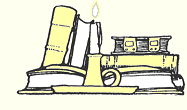
Here are some rules of thumb on what makes for freedom and stability in government:
Orderly Devolution of Power:
When the old leader goes out, who is the new leader? Unless there are rules for deciding, you get mayhem at the end of every administration. This is the oldest lesson and the reason for people being so anxious about the legitimacy of kings.
Rule by Law, Not by Men:
"The king's not above the law, for it's the law that makes him king." (The Horse and His Boy, C. S. Lewis) This is the lesson that the Jews and the Greeks jointly teach the world, and it is the first step away from tyranny. Perhaps it comes from the previous lesson. But if the Law is supreme over the Leader, then no one, not even the Leader, is indisputable.
State Justice Monopoly:
Only the state should punish crimes against persons and property. Vigilantes are an understandable temptation but a bad idea, since the practice readily degenerates into gang- and clan-warfare. On the flip side, the government should never be so slack in its justice that people are tempted to become vigilantes.
Inalienable Rights:
The phrase is American but the idea is not. We get it from the English, who acknowledge that every Englishman has a (vaguely defined) set of rights. It matters what the inalienable rights are, but it matters more that there should be a fair number of them.
Loyal Opposition:
This is the idea that you can be a law-abiding patriot and still oppose the policies of the leaders. It is the first thing to go when a nation becomes totalitarian.
Division of Powers:
In the USA, we divide the powers along the lines of Executive, Legislative, Judicial; in Medieval Europe, they divided them between the spiritual and temporal authorities. The basic utility of this division, whatever form it takes, is to pit authorities against one another, so that their deadlocking can prevent tyranny; no one division of power can become supreme because the other divisions will always prevent it.
Both Loyal Opposition and Division of Powers are attempts to answer the old political riddle, "Who will keep the keepers?"
Separation of State and Media
State control of the media has to be limited in order to protect the Loyal Opposition principle. Otherwise, the state gets to tailor public reality to suit itself and censor the Loyal Opponents.
Separation of Army and Police:
If the army and the police are a single body, then the state is essentially at war with its citizens. At least, it is poised for such a war, and humans do not resist such temptations well.
Separation of Army and State:
Armies exist to fight, to cope with emergencies and survival issues. If the army is the state – if military rank gives the right to legislate or to act as executive – inalienable rights and loyal opposition are hard to maintain. They go down before the imperatives of the crisis. What crisis? Active armies are always in a crisis.
Separation of Church and State:
Even if a state has all the above safeguards, I recommend this one because religious claims are transcendental, and it is easy for people to misuse them as an excuse to override principles like rule by law, inalienable rights, and loyal opposition.
The state should be separated from both church and army for similar reasons. With the army, the overwhelming issues that provide pretext for tyranny come from the physical realm. With the church, the pretexts come from the metaphysical realm. Culture exists between the two, and a healthy culture must tell both to butt out as often as possible.
Return to Introduction to Essays
Return to Wind Off the Hilltop
Copyright © Earl Wajenberg, 2011